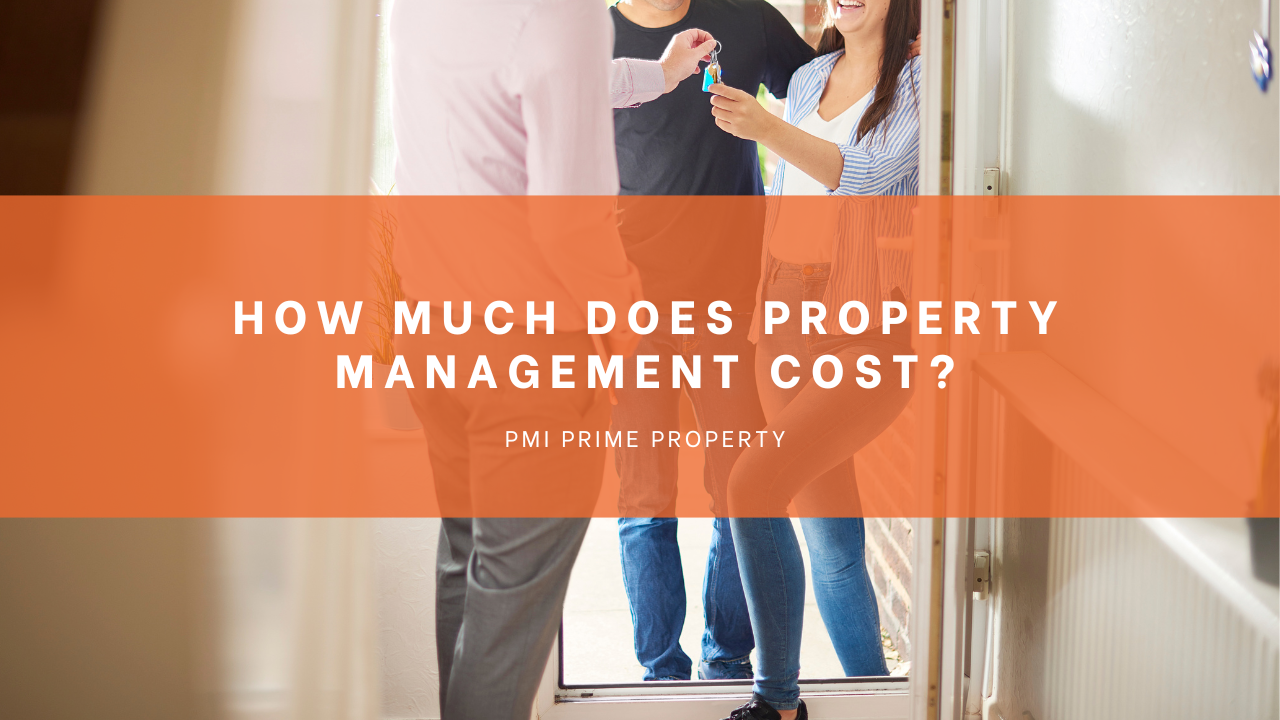Key Takeaways
Property management fees vary based on several factors. Common property management fees include monthly management, leasing, lease renewals, collecting rent, tenant relations, financial reporting, routine property inspections, and evictions—some property management fees offer flat fees, while others are percentage-based.
It’s crucial to evaluate the total cost of additional property management fees, not just the average fee. Hidden property management fees like advertising, handling maintenance requests, and financial reporting costs can add up, so reviewing the full property management fee schedule is essential.
A reputable property manager can maximize your ROI despite higher upfront setup fees. By reducing vacancies and maintaining property value, professional management often pays for itself over time.
For many rental property owners, hiring a property management company offers peace of mind, time savings, and professional oversight.
But one of the most common questions investors ask when hiring a property manager is: How much does property management really cost? And is a property manager worth it?
The answer depends on several factors related to property management fees, including the property type you own, its location, and the specific services you require. Accounting for rental property details and different property type scenarios, like owning one single-family home, multi-unit condo fees, and frequently vacant residential properties, can make a difference in the amount paid in real estate management fees.
Understanding property management pricing is essential to making informed financial decisions about your rental business.
PMI Prime Property has twenty-plus years of experience offering comprehensive property management resources and services, helping property owners maximize their rental income, and bringing our clients peace of mind so they can focus on what matters most.
Contact Us Today For A Free Rental Analysis!
If you’re thinking of hiring a property management service, here are the property management fees you need to keep in mind:
Property Management Fees
One of the most common and recurring costs associated with hiring a property management services is the monthly management fee. This monthly management fee is typically charged as a percentage of the monthly rent collected and includes day-to-day residential property management services like ongoing tenant management and rent collection.
While rental property management fees can vary, they often fall within a standard range and depend heavily on the local real estate market, the type of property, and the services included in the agreement. Some companies may charge an extra initial setup fee for first-time clients.
The initial setup fee accounts for onboarding and extra administrative work by the property management company to get the client's rental property established, and the additional fee often falls in the range of a few hundred dollars.
When working with a new property management company, they may allow the monthly management fee to be at a fixed rate instead of percentage-based fees. While fixed property management fees can provide predictability, they may not be cost-effective for real estate investors with smaller rental properties or a single-family home.
On the other hand, percentage-based pricing scales with your rental income, which can benefit both new and seasoned landlords with growing rental real estate property portfolios.
Leasing or Tenant Screening Fees
Some property managers charge leasing fees and tenant screening fees when high-quality tenants are placed in the rental property by the property management company.

This one-time tenant placement cost compensates the property manager for marketing the unit, screening prospective tenants, managing tenant placement, conducting showings, and preparing the lease agreement. Depending on the company, the leasing fee or tenant placement fee may be a flat fee or a percentage of the first month’s rent.
Property management companies may bundle the leasing fee and tenant screening fee into the broader management service package, especially if the real estate investor is committing to a longer-term contract.
However, other property management companies charge this fee separately every time a new lease is signed. If your property experiences frequent turnover, it’s crucial to consider how often these costs may arise from repeated tenant placement and tenant screening.
Lease Renewal Fees
When a resident renews their lease agreement, a property management company may charge a lease renewal fee. This fee covers the time and effort it takes to renegotiate terms, observe rental trends and local rental rates, prepare new lease documents, and manage legal compliance.
Although not as substantial as leasing fees, lease renewal charges can add up over time, especially if you manage several rental property units or if your lease terms are shorter than 12 months.
Maintenance Markups and Coordination Fees
Maintenance is a key responsibility of property managers, and it’s also a common source of added costs.
Many property management companies coordinate repairs and routine upkeep on your behalf. In some cases, property management companies charge a maintenance markup on vendor invoices or apply a maintenance coordination fee for arranging services. These maintenance fees may be calculated by the companies as a percentage of the repair cost or billed as a flat fee.

Some property management companies have in-house maintenance teams, while others rely on third-party contractors. In either case, owners should understand how vendors are selected and whether the management company adds extra maintenance fees to their services.
You should also ask whether you’ll be notified before rental property repairs are made, especially for maintenance items that exceed a certain cost threshold.
Our Property Management Services
Vacancy Fees
Some property management companies charge vacancy fees, especially if your rental property remains unoccupied for an extended period and fails to have rent collected.
While not universally applied by all companies, this fee can serve as compensation for the property manager’s time in keeping the vacant property secure, managing it during the vacancy, and actively marketing it for rent.
The fees are sometimes controversial, as owners may feel penalized for a vacant property and are already at a monthly loss as they are no longer collecting rent. It’s important to clarify if your property manager charges a fee and under what circumstances. In some cases, the property manager's fee may only apply after a set number of days without rent collection from a tenant.
Advertising Costs
Marketing your rental property is essential for attracting qualified tenants.
Most property management companies may include advertising costs in their leasing fees, while other management companies charge them as a separate flat fee.
Additional services and fees for advertising may involve managing online listings, social media advertisements, professional photography, virtual tours, and even paid ads on rental platforms.
Inspection Fees
Regular property inspections help protect your investment and ensure that lease terms are being followed. Most property management companies manage move-in, move-out, and mid-lease inspections as part of their core services.
Others charge additional property management fees for these visits, especially if they include detailed documentation or photo reports by the property manager.

Inspections can be scheduled at regular intervals or requested on an as-needed basis. Knowing whether these services are included in your monthly fee or billed separately will help you better manage your total property management cost.
Eviction Fees
Although most professional property managers thoroughly screen tenants to reduce the risk of eviction, the unfortunate reality is that evictions can still occur. In case an eviction is necessary, some property managers charge a management fee to manage the process.
This may include the property manager managing paperwork, attending court hearings, and coordinating with legal counsel.
Additional Administrative Fees
Aside from the main categories above, many property management companies charge extra for services they manage like document preparation, HOA coordination, rent collection, utility billing, or handling security deposit disputes. While individually these separate management fees may seem minor, they can add up over time.
As a rental property owner, your goal is to evaluate the total cost of property management, not just the headline monthly fee. Reviewing a sample agreement or fee schedule can give you a better sense of how your management company structures its charges.
The Value Behind the Cost
While fees are an important part of choosing a property manager, it’s just as important to look at the value provided by a reliable property manager. A good property management company does more than just collect rent. Residential property managers preserve the condition of your asset, maintain strong resident relationships, ensure legal compliance, and reduce stress for owners.

In some cases, paying slightly higher fees to a good property manager can result in higher returns through reduced vacancies, better tenant retention, and fewer costly mistakes. That’s why savvy property investors often focus on total return on investment rather than just minimizing fees when it comes to signing a property management contract.
Why Working with a Property Management Company Pays Off
For many landlords, the idea of handing off day-to-day responsibilities to a professional team of property managers is worth every penny from their monthly rental income. Here are a few reasons why signing a property management contract with a property management company can be one of the smartest investments you make:
It saves you time. Managing a rental is a 24/7 responsibility. Late-night maintenance calls, missed rent collection, or emergency repairs can interrupt your schedule and increase stress. A property manager manages these tasks efficiently, freeing up your time for other priorities.
It reduces legal and financial risk. Experienced property managers understand local housing laws, lease enforcement, fair housing regulations, and eviction procedures. Their knowledge can help you avoid costly mistakes or lawsuits that result from unintentional violations.
It helps maximize income. Property managers know how to price your rental competitively, keep your property in excellent shape, and ensure quick turnaround between tenants. The efforts of a property management company directly contribute to a more stable rental income and profitable long-term investment.
It builds long-term value. A well-managed property retains better tenants, operates more efficiently, and often appreciates more quickly than one that is poorly maintained or inconsistently handled.
Final Thoughts
The cost of property management can vary, but the true value lies in the peace of mind, professionalism, and performance it brings. Rather than viewing a property manager purely as an expense, think of it as an investment in your property’s success.
Before signing a management agreement, review the fee structure carefully. Ask questions, understand what’s included, and consider how the property manager’s expertise will benefit your specific situation.
If you need assistance, contact PMI Prime Property. PMI Prime has experience in all property types, from multi-family properties to single-family homes to all kinds of residential properties, and we're here to help you maximize rental income with our comprehensive property management services for real estate investors.


